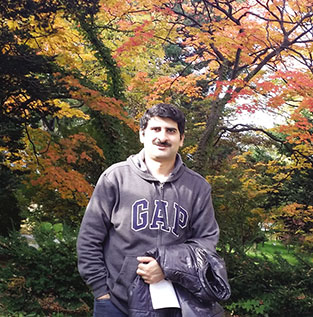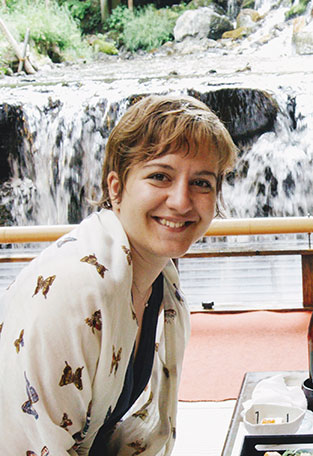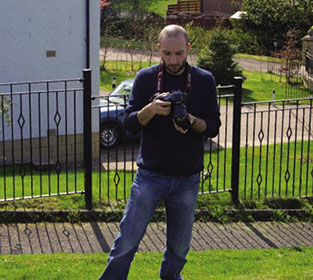Brexit: the sword of Damocles for researchers

Brexit: what’s the story so far ?
Breakdown across the UK
England voted for Brexit, with 53.4% of the votes, as did Wales, with 52.5 %. Scotland voted to stay in the EU, with 62 %, so did Northern Ireland, with 55.8 % (source: BBC).
A new Prime Minister
David Cameron resigned on the day after losing the referendum. The new Prime Minister is Theresa May, former Home Secretary. She is in charge of negotiating the conditions for leaving the EU.
Article 50 of the Lisbon treaty
The UK has to invoke an agreement set out in Article 50 of the Lisbon Treaty, which gives the two sides two years to agree the terms of the split. Theresa May has said she intends to trigger this process by the end of March 2017, meaning the UK is expected to have left by the summer of 2019.
Key Brexit dates (source: The Daily Telegraph)
24 January 2017
Supreme Court delivers ruling that Government must seek Parliamentary approval to invoke Article 50
31 January
Start of a two-day Parliament debate on triggering Article 50 and starting the Brexit process
1 February
MPs vote on the Brexit Bill, deciding to give Theresa May the power to get Brexit negotiations under way. The Government wins by a landslide
7 February
MPs reject a rebel amendment calling for Parliament to give final approval of the EU deal
31 March 2017
Deadline set by Mrs May for invoking Article 50 and notifying the European Council of the UK’s intention to leave the EU
30 September 2018
Date by which EU’s chief Brexit negotiator, Michel Barnier, wants to wrap up terms of the UK’s exit from the Union
31 March 2019
Date by which Theresa May wants to wrap up negotiations over Brexit
May 2019?
The UK formally exits the EU, following ratification of Brexit by all other EU countries.
Our Fellows

Ahmed Balboula
“I was selected as a Marie Curie Fellow to join the laboratory of Prof. David Glover, University of Cambridge, UK.”
From Egypt
Research project: dissecting the underlying mechanisms that regulate spindle assembly in meiotic oocytes and early stage embryos to understand why mammalian oocytes and embryos are prone to error.
Host city: Cambridge
Stefan Bauer
“I am interested in the history of historiography, religion, philology, and literature. In my current role, I oncentrate on Reformation and Counter-Reformation in Europe, especially England, Germany and Italy.”
From Germany
Research project: the history of religious polemic – ‘History and Theology: the Creation of Disinterested Scholarship from Dogmatic Stalemate (ca. 1525-1675)’.
Host city: York


Valentina Ferro
“I am currently a PhD candidate in Scotland where I took the role of chair of the MCAA Scotland Chapter.”
From Italy
Research project: training 13 PhD students in the development and application of novel imaging modalities, including super-resolution microscopy techniques, with the aim of understanding biological processes at the molecular, subcellular, cellular, tissue and organ level. Application spans early disease diagnosis to treatment.
Host city: Dundee
Gianluca Grassia
“I am proud to be a pharmacologist but it would be better for me to define myself as an experienced researcher in pharmacology with a specialisation in (years spent) in immunology and inflammation, cardiovascular diseases and nanomedicine.”
From Italy
Research project: modernising the diagnosis and treatment of heart disease by combining nanotechnology with advanced imaging methods.
Host city: Glasgow

Impressions of the referendum campaign
None of our Fellows expected that the majority would vote in favour of Brexit. “Everyone expected the Remain side to win,” says Stefan. “It was difficult to even get anxious about Brexit,” echoes Valentina, who points to the multicultural environment in which she lives in Scotland as one of the reasons why she thought people would reject Brexit. “I didn’t expect the referendum was going to matter too much because I thought that the UK would vote to remain,” says Ahmed.
“I expected the remain side to win”
To Gianluca, it wasn’t even a matter for discussion “For all of us, researchers from all parts of the UK and Europe, the referendum was a useless response to an issue raised by politicians. European research is multidisciplinary,competitive and oriented to European integration, taking part in such programmes was an integral part of research and innovation in the UK.”
The day after the vote
“It was almost surreal.”
For all of our Fellows, the Brexit vote came out of the blue. “No one among the people I know voted for Brexit,” exclaims Valentina.
Stefan emphasises the shock felt by people around him: “The referendum took place at a particular moment in my life, since the results became known on the day before my wedding. I personally don’t know anyone who was not taken by surprise. It was almost surreal.”
Valentina describes the whole atmosphere as sombre and mournful: “More than the result itself, I think that the disconcerting feeling originated from the surprise over a vote that was thought of as irrational in my community. In many respects – economical, social and political – it was seen as an impossible choice.”
“I became very worried because the result could indicate that foreigners are not welcome in the UK”
Ahmed explains that it was not only UK-based researchers who were shocked, but also people on the verge of starting research in the country, like him: “In addition to being sad, I became very worried because the result could indicate that foreigners are not welcome in the UK.”
“Perhaps historians should not actually be surprised if they consider the previous, most significant English split from the European Continent”
Stefan’s supervisor was among those who saw this result coming, giving the following explanation: “Perhaps historians should not actually be surprised if they consider the previous, most significant English split from the European continent, which occurred 500 years ago during the Reformation. The new Church of England did not properly adhere to any dominant religious trend, but created its own religious character,” he muses.
For Fellows currently based in Scotland, the situation is felt differently. “On the positive side, knowing that Scotland voted to stay was comforting,” says Valentina. Gianluca speaks of the e-mail he received from the Principal and Vice-Chancellor of the University of Glasgow (Prof. Anton Muscatelli) the day after the results of the vote: “I want to emphasise to my colleagues and to our students from the EU just how much this university values your contribution to our community. You are a vital and essential part of our university. The University of Glasgow was founded in the European tradition, and nothing will change our international outlook which will continue to look to Europe for our academic collaborations.” “What have they done?!!!” he asks.
“Knowing that Scotland voted to stay was comforting”
Potential consequences for research and personal lives
“We still wonder whether Brexit will really happen”
All of our Fellows agree that life hasn’t changed that much since the referendum. “I go to work every day, I chat with the same colleagues during lunch and we still wonder if Brexit will really happen after all,” says Valentina. To Stefan, the indignation among the public was limited
to a small proportion of people “After this, the Brexit side took complete control. The stock markets recovered after two days. I think that some of this is due to the British mentality, which places great value on admitting defeat with dignity: nobody likes a sore loser here. In addition, Britain has the longest tradition of democracy in modern Europe and the referendum is seen as the outcome of a democratic procedure. The Remain side is now under heavy pressure both from the government and the mass media, and they seem to keep quiet.”
The future does however seem less bright than it once did. Gianluca expresses his desire to go back to Italy as to him, the UK is not Europe anymore. To Valentina, research might be less prestigious than she thought: “While before it represented good career prospects, now things are uncertain.
“Now things are uncertain”
When deciding upon my next position, I will consider that remaining in UK, especially in academia, might slow down my professional growth. If UK universities lose financial support from the EU, the prestige of British research may suffer, as well as funding for positions and new research groups in the future.”
Hope and expectations for research
“The government should reassure foreign scientists”
All of our Fellow agree that an agreement with the EU over research funding is essential. “I really hope that the government can negotiate with the EU to maintain access to European funding, which I think will not be easy at all. If not, the government should take steps to reassure foreign scientists and to support research with an equivalent amount of funding. This will be for maintaining high quality research in the UK,” says Ahmed.
“No scientist in the UK sees a prosperous future for UK research after Brexit. It is anachronistic and misguided to think that some form of research body upon the control of their borders (for funds and human resources) could be competitive nowadays,” says Gianluca.
“Valentina is more worried about young scientists: “The risk the UK is incurring by prolonging the uncertainty about Brexit and its consequences on research is to lose the next generation of brilliant scientists that
would have otherwise stayed in the country.”
Nota bene from the author
The testimonies from our Fellows were gathered in December 2016. This article was written in February 2017, while MPs were debating the Bill. If, in the meantime, some changes have occured regarding Brexit, we ask you for your understanding!